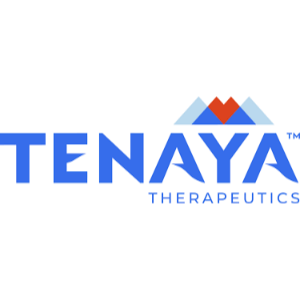Tenaya Therapeutics Announces Publication of Preclinical HDAC6 Inhibitor Data for Heart Failure with Preserved Ejection Fraction in Nature Communications
Highly selective Small Molecule HDAC6 Inhibitor Effectively Reversed Heart Failure and Improved Diastolic Heart Function Alone or in Combination with SGLT2 Inhibitor in Murine Models of Disease
SOUTH SAN FRANCISCO, Calif., Feb. 26, 2024 (GLOBE NEWSWIRE) -- Tenaya Therapeutics, Inc. (NASDAQ: TNYA), a clinical-stage biotechnology company with a mission to discover, develop and deliver potentially curative therapies that address the underlying causes of heart disease, today announced the publication of preclinical research related to Tenaya’s small molecule inhibitors of histone deacetylase 6 (HDAC6), including TN-301, in the February 26, 2024, issue of Nature Communications. The article, titled “Targeting HDAC6 to Treat Heart Failure with Preserved Ejection Fraction in Mice,” details the potential of inhibiting HDAC6 for the treatment of Heart failure with preserved ejection fraction (HFpEF), a form of heart failure that effects more than three million people in the U.S. alone1.
The extensive body of preclinical research described in Nature Communications showed that inhibition of HDAC6:
- Successfully addressed many of the biologic hallmarks of HFpEF, with direct effects on the heart such as diastolic relaxation and systemic benefits including normalization of metabolic and inflammatory factors, in a preclinical murine model that replicates the HFpEF disease state.
- Achieved comparable or superior efficacy and was shown to have a distinctive multi-modal mechanism of action versus empagliflozin, a sodium-glucose cotransporter-2 (SGLT2) inhibitor approved by the U.S. Food and Drug Administration as a treatment for HFpEF.
- Showed additive benefits when combined with empagliflozin compared to either agent alone, indicating the potential for the use of a small molecule HDAC6 inhibitor alone or as a combination therapy for the treatment of HFpEF.
“With a combination of direct and systemic benefits on disease pathophysiology, HDAC6 inhibition shows significant potential for the treatment of HFpEF, one of the largest unmet needs in heart disease treatment,” said Tim Hoey, Ph.D., Chief Scientific Officer of Tenaya. “Our extensive preclinical package, detailed in the current publication in Nature Communications, along with the encouraging data from our TN-301 Phase 1 study, provide strong rationale for Tenaya’s HDAC6 inhibitor program as a promising therapeutic strategy for HFpEF patients.”
Last year, Tenaya completed a Phase 1 clinical trial in which TN-301 achieved encouraging safety, target engagement and pharmacokinetic results across a wide range of doses tested in healthy participants2.
Tenaya’s highly selective small molecule inhibitors of the enzyme HDAC6 were discovered using the company’s modality-agnostic target discovery and validation capabilities. Unlike other members of the HDAC family, HDAC6 is localized to the cell cytoplasm where it coordinates cellular processes through interactions with multiple substrates, including tubulin, and tubulin acetylation was identified as a reliable plasma biomarker of HDAC6 target engagement.
Having previously reported on the cardioprotective qualities of HDAC6 inhibition in a model of genetic cardiomyopathy3, researchers set out to assess the potential of HDAC6 inhibition in HFpEF using multiple models of HFpEF, including a proprietary high fat diet (HFD) and moderate transverse aortic constriction (mTAC) murine model that replicated the metabolic and mechanical stress seen in patients with HFpEF. For preclinical studies, Tenaya researchers used TYA-018, an HDAC6 inhibitor structurally and functionally similar to the company’s clinical candidate, TN-301.
Key Findings
- Treatment with TYA-018 as a single agent resulted in direct effects on the heart (reversal of diastolic and mitochondrial dysfunction, decreased hypertrophy, reduced fibroblast activation and enhanced energetics), and systemic benefits (improved exercise performance and glucose tolerance and reduced markers of inflammation).
- TYA-018 showed comparable benefit to empagliflozin in the murine HFpEF model.
- Gene expression analysis provided insights on TYA-018’s distinct mechanism of action. HDAC6 inhibition was shown to restore hypertrophy, fibrosis and mitochondrial energy production. TYA-018 demonstrated greater impact on markers of oxidative stress, inflammation and metabolism as compared to SGLT2 inhibition.
- The combination of TYA-018 and empagliflozin resulted in additive benefits, exceeding the efficacy observed with either agent alone with measurements of cardiac function nearing that of healthy controls.
- The selective effects of HDAC6 inhibition were reaffirmed through genetic deletion studies, in which treatment of Hdac6 knockout mice did not display any of the beneficial effects that wild-type HFpEF mice did following treatment.
About HFpEF and TN-301
Heart failure with preserved ejection fraction (HFpEF) is a common, debilitating syndrome characterized by a stiffening of the heart muscle resulting in an inability for the left ventricle to relax properly during normal heart rhythm, referred to as diastolic dysfunction. There are several cellular processes thought to underly the pathophysiology of HFpEF including increases in fibrosis and inflammation and defects in metabolism. Although HFpEF accounts for approximately 50 percent of all heart failure hospitalizations in the U.S.4, there are few proven treatment options.
TN-301 is Tenaya’s highly specific potential first-in-class small molecule histone deacetylase (HDAC) 6 inhibitor, initially being developed for the treatment of HFpEF. TN-301 has a multi-modal mechanism of action that includes modifying cytoskeletal and other proteins to coordinate cellular processes. In preclinical studies, TN-301 has been shown to reverse many of the signs and symptoms of HFpEF, with evidence of improved cardiac function and improved glucose tolerance and reduced inflammation and fibrosis. Tenaya has completed a dose escalating Phase 1 clinical trial of TN-301 in healthy participants. TN-301 was well tolerated across a broad dose range with dose-proportional pharmacokinetics supportive of once-daily dosing and target engagement observed.
About Tenaya Therapeutics
Tenaya Therapeutics is a clinical-stage biotechnology company committed to a bold mission: to discover, develop and deliver potentially curative therapies that address the underlying drivers of heart disease. Leveraging its integrated and interrelated Gene Therapy, Cellular Regeneration and Precision Medicine platforms and proprietary core capabilities, the company is advancing a pipeline of novel therapies with diverse treatment modalities for rare genetic cardiovascular disorders and more prevalent heart conditions. Tenaya’s most advanced candidates include TN-201, a gene therapy for MYBPC3-associated hypertrophic cardiomyopathy (HCM), TN-401, a gene therapy for PKP2-associated arrhythmogenic right ventricular cardiomyopathy (ARVC), and TN-301, a small molecule HDAC6 inhibitor being initially developed for heart failure with preserved ejection fraction (HFpEF). Tenaya also has multiple early-stage programs progressing through preclinical development. For more information, visit www.tenayatherapeutics.com.
1. Tsao, et al, Circulation 2023
2. Bexon, et al, HFSA 2023
3. Yang, et al, Sci Trans Med 2022
4. Shah, et al, JACC 2017
Forward Looking Statements
This press release contains forward-looking statements as that term is defined in Section 27A of the Securities Act of 1933 and Section 21E of the Securities Exchange Act of 1934. Statements in this press release that are not purely historical are forward-looking statements. Words such as “potential,” “promising,” and similar expressions are intended to identify forward-looking statements. Such forward-looking statements include, among other things, the clinical, therapeutic and commercial potential of TN-301 both alone and/or in combination with an emerging standard of care as a treatment for HFpEF. The forward-looking statements contained herein are based upon Tenaya’s current expectations and involve assumptions that may never materialize or may prove to be incorrect. These forward-looking statements are neither promises nor guarantees and are subject to a variety of risks and uncertainties, including but not limited to: the potential failure of TN-301 to demonstrate safety and/or efficacy in clinical testing; unexpected concerns that may arise as a result of the occurrence of adverse safety events or additional data analyses of clinical trials evaluating TN-301, both alone or in combination with other therapies; the timing, scope and likelihood of regulatory filings and approvals for TN-301; risks associated with the process of discovering, developing and commercializing drugs that are safe and effective for use as human therapeutics and operating as an early stage company; Tenaya’s ability to develop, initiate or complete preclinical studies and clinical trials, and obtain approvals, for any of its product candidates; Tenaya’s continuing compliance with applicable legal and regulatory requirements; Tenaya’s ability to raise any additional funding it will need to continue to pursue its business and product development plans; Tenaya’s reliance on third parties; Tenaya’s manufacturing, commercialization and marketing capabilities and strategy; the loss of key scientific or management personnel; competition in the industry in which Tenaya operates; Tenaya’s ability to obtain and maintain intellectual property protection for its product candidates; general economic and market conditions; and other risks. Information regarding the foregoing and additional risks may be found in the section entitled “Risk Factors” in documents that Tenaya files from time to time with the Securities and Exchange Commission. These forward-looking statements are made as of the date of this press release, and Tenaya assumes no obligation to update or revise any forward-looking statements, whether as a result of new information, future events or otherwise, except as required by law.
Contacts
Michelle Corral
Vice President, Investor Relations and Corporate Communications
Tenaya Therapeutics
IR@TenayaThera.com
Investors
AnneMarie Fields
Stern IR
AnneMarie.Fields@SternIR.com
Media
Wendy Ryan
Ten Bridge Communications
wendy@tenbridgecommunications.com








